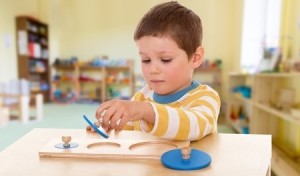Teaching Toddlers, age 2-3 may help increase your child’s brain power and creativity. Child development and teaching can be a daunting task at any age, especially when teaching toddlers of age two to three.
Here are a few parenting tips to help get you through this time of your child’s life and ease child teaching.
Seven Good Practices for teaching toddlers
1. Help expand your child’s creativity by encouraging them to participate in a pretend play. Learning to be creative is key in child development, as it allows children an outlet to express themselves in ways they may not be able to otherwise.
2. Set specific times to read to and with your toddler. At these early stages keeping your child engaged in reading will not only give them a firm grasp of the language they need to know for the rest of their lives, but the social bond between parent/guardian and child provides a sense of security.
3. When teaching toddlers of age 2-3, it is a very good idea to teach your child simple songs that are fun. By teaching your child songs at an early age, you help to improve their long and short-term memory. It teaches them to learn by hearing and listening which, improves their ability to focus.
 4. Give your child attention and praise when they follow instructions and minimize temper outbursts. Praising your child when they do something right helps them associate what are the right and acceptable things to do in society. Minimizing or limiting temper tantrums helps them to know what is and isn’t an acceptable way to show that they are upset.
4. Give your child attention and praise when they follow instructions and minimize temper outbursts. Praising your child when they do something right helps them associate what are the right and acceptable things to do in society. Minimizing or limiting temper tantrums helps them to know what is and isn’t an acceptable way to show that they are upset.
5. Make sure you toddler is exposed to a variety of healthy foods. Giving your child healthy foods early is not only helping child development and teaching but it helps their taste buds get used to eating healthy foods. Studies show that when you feed your child unhealthy foods, they start to develop a taste for those kinds of foods, and a distaste for healthy foods.
6. Keep televisions out of the child’s room. In teaching toddlers at this age, watching too much television can be damaging to the child’s eyes mainly because their eyes are still developing. It also encourages the child to be less active, and stimulates over-eating. Keep the television and media watching to at or less than 1-2 hours per day.
7. Make sure your child gets plenty or playtime outdoors. Sometimes we look at children playing as a waste of time. However, studies have shown that children who play often are happier, eat more regularly, and form better connections with others than children who sit and watch more television.
All in all, teaching toddlers, and generally child development and teaching, has its ups and downs, positives and negatives. However, the developmental achievements that are possible by employing these principles cannot be argued with. Keep putting in the efforts and you will see the rewards.






